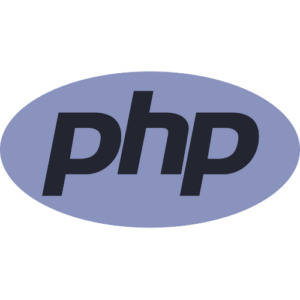Your digital transformation partners!
Get In Touch
Call Now
+91 9225117897
Quick Email
info@goodmansvision.com
Office Address
Savarkar Nagar, Nashik, Maharashtra, India
PHP

PHP (Hypertext Preprocessor) is a popular backend programming language that is widely used for web development. It is an open-source language, which means that it is free to use and modify. PHP is a server-side language, which means that it runs on the web server rather than on the user’s computer
PROS
- PHP is easy to learn and use. It has a simple syntax that is similar to C and Java
- It is widely supported and has a large community of developers, which means that there are many resources and tools available for PHP development
- PHP is fast and efficient, which makes it a good choice for developing large-scale web applications
- It is compatible with many databases, including MySQL, Oracle, and PostgreSQL
CONS
- PHP can be less secure than other backend technologies if not used properly, as it is prone to common web application vulnerabilities such as SQL injection
- The language is sometimes criticized for its lack of consistency and clarity in naming conventions and function syntax
- PHP is not as well-suited for handling real-time data or heavy computational tasks as other technologies like NodeJS
best suited for
- E-commerce websites, such as online stores and marketplaces, are built using PHP
- Content management systems (CMS), such as blogs and forums, are also built using PHP
- Social networking websites, such as Facebook and LinkedIn, originally used PHP for their backend development
popular examples
Facebook’s original backend was built using PHP, and it still uses PHP for some parts of the platform. WordPress, one of the most popular CMS platforms, is written in PHP and powers millions of websites. Magento, a popular e-commerce platform, is built using PHP and used by companies like Nike and Samsung

Small Business Grow faster With Our Consulting Services

Subscribe
Join us! Our Newsletter will keep you updated!
© 2023 Goodmans Vision Private Limited

